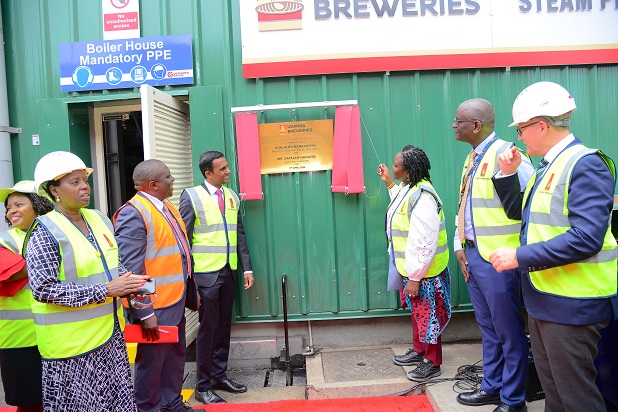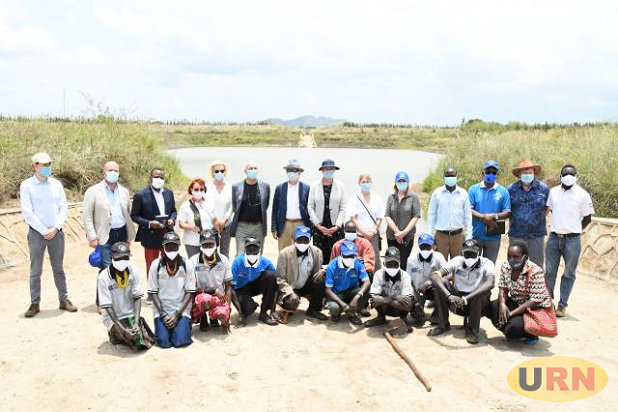Radio lessons for primary schools resumed on Monday June 14, 2021 following the closure of schools due to COVID-19
Several parents and learners in Kampala are unaware of the resumption of the lessons broadcast on radio for primary school pupils. On Monday, selected radio stations across the country started broadcasting lessons for primary school learners following the closure of schools for 42 days as part of the control measures against the second wave of COVID-19.
In Kampala, Central Broadcasting services (CBS) was selected to broadcast the lessons targeting central region. According to the program, each radio station is expected to air two 25-minutes lessons for three days each week, starting with primary four and five classes.
However, a mini survey conducted by our reporter in various homes in selected areas in Kampala shows that both the pupils and parents are unaware of the radio programs.
Yusuf Ssenoga, a grandparent of a primary five pupil in Kamwokya, a Kampala suburb, says the initiative is good for the learners who are stuck at home.
He however, says that she however, says that she wasn’t aware of the initiative. Ssenoga suggests that the government uses television for effectiveness as opposed to radio stations.
Christine Nabirumbi, a parent in Mulago, said that she was not aware of the program. She also says that it is difficult for learners to concentrate on lessons broadcast over radio. According to Nabirumbi, she will get a teacher to teach her primary four children in order to have meaningful results.
Harima Nalongo, a mother in Bukoto also told URN that she wasn’t aware about the radio lessons, adding that the last she heard about it was during the lockdown. Nalongo says that she will be tuning in for her primary five child since she didn’t carry any study work from school because of the abrupt closure.
Irene Nalwanga, a parent in Bwaise, who says she doesn’t own a radio set says that the program will not benefit some learners. She explains that even if she had a radio set, it would be difficult for her to tune in for her primary five pupil because of her boss and the noise around, which wouldn’t favor the learner.
Unlike last year when the government proposed to procure radio sets for every family across the country there is no such proposal this time around. Betty Ninsiima, another parent in Bukoto was also ignorant about the radio lessons. She however, says that she has no problem tuning into the radio lessons for her primary four daughter but is frustrated by unstable FM radio waves.
She is also concerned about the effectiveness of the program and the targeted audience. Ninsiima says it becomes hard for a primary pupil to concentrate on radio without any visual aids and suggests that the television would have been more effective.
Our reporter visited some homes and found the targeted learners playing without knowledge about the radio lessons. Garry Okurut, a primary five pupil of Buziga Islamic school who was buying books at a kiosk told our reporter that she had not heard about the radio lessons.
Okurut also noted that he would prefer studying on television especially when it comes to a subject like mathematics. ‘’I have not heard about the radio studies, but we have a teacher who is going to start teaching us at home ,me and my brother who is in primary two,” Okurut said.
Michelle Ahabwe, a primary four pupil at Kitante primary school, says that she would prefer having lessons on the television especially mathematics. ‘’Mathematics is too hard for me and just listening in to the radio as the teacher teaches will be making it difficult for me to understand, may be if it was on television,’’ Ninsiima said.
Joel Turyahebwa, a primary four pupil in Kamwokya was having lunch at 2.40 pm when the second lesson was being aired. He said that he was not aware of the program, saying that even his parents who were away from home didn’t tell him about it.
‘’I had not yet started revising my books. Now that I have known about the radio lessons, am going to start attending them. It’s good that there on radio because on television there is competition as everyone would like to tune on their own programs,’’ said Turyahembwa.
Government is expected to spend Shillings 2.2 billion on procuring airtime on radio. This is part of the grant of Shillings 5.8billion government received from the global partnership in education to support education programs during the lockdown.
-URN





